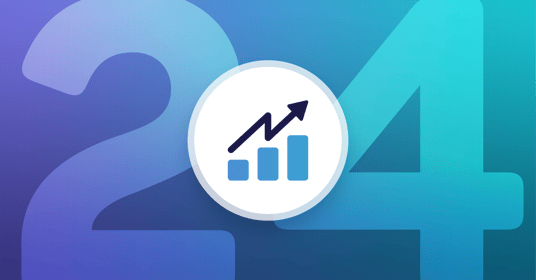Michael Hurst, Dan Laabs, Gia Zopatti, QA, SmugMug
What does SmugMug's QA team think is in store this year? Well, we expect a continued trend towards more advanced, more accessible automation, from leaps in the low-code sphere to major assistance from new AI technologies – not to mention mabl's expansion into native apps, which will propel app testing to blistering speeds.
Exploratory testing will have its own moment, too, as increasingly complex software and the move toward faster-than-ever delivery push our experience, creativity, intuition, and critical thinking to new heights.
Gone will be the days of the tester as a solitary, narrow role. We'll dig deeper into risk assessment, process improvement, product management, data analysis, and user research. We'll strategize across entire organizations to raise the bar on quality from site health measurement to incident response. The future will shine a brighter light than ever on security, and we'll rise to the occasion. QA will move faster, learn more, and tell a story where automation and the human mind aren't at odds, but bolster one another. Together, they'll be a force to be reckoned with.
As for our small but mighty (and Oreo-fueled) team in 2024? Well, we anticipate our highest cookie consumption yet.
Dan Belcher, Co-founder, mabl
Though this year has already been dominated by foreboding headlines, particularly in the tech industry, I truly believe that 2024 will be the year of the software tester. The major trends we’ve been observing over the past several years - DevOps, AI, digital transformation - have primed development organizations to focus on how they can build better software and innovate at a faster pace. Quality is at the core of these challenges.
Modern software quality means that development teams have greater confidence in their code because they know that each release has been tested for functional and non-functional regressions. They trust that software testing is accurate, reliable, and provides a high level of test coverage. To deliver that level of confidence in 2024, QA teams will adopt AI at a greater pace, find new ways to collaborate with developers, integrate testing more deeply in CI/CD pipelines, and learn new testing skills like accessibility and performance testing. Quality assurance will become a holistic, collaborative practice that drives value for companies and their customers.
Vince Mahan, Lead QA Engineer, Chorus Innovations
In 2024, I predict the beginning of a remarkable transformation in QA, driven by the growing influence of AI and machine learning. By merging cutting-edge technology with human expertise, these emerging technologies will help QA teams balance speed and quality demands more effectively. However, it's important to remember that AI isn't here to replace us as quality professionals, but to empower us by enhancing our abilities and allowing us to innovate in ways we've never imagined.
We must recognize that we'll face challenges in the year ahead, such as ensuring that AI integrates seamlessly with current tools and QA processes while addressing privacy issues and validating the accuracy of AI's decisions. But teams who can overcome these challenges will gain significant advantages. Despite the uncertainties ahead, I couldn't be more excited for the future!
Izzy Azeri, Co-founder, mabl
2024 is the year of the customer experience, whether you’re a global enterprise or fast-growing startup. The tidal wave of digital-first products and services that was born in 2020 has matured, and can now meet customers across devices and browsers at any time. That level of convenience also means a new level of competition as customers can change brands the second they encounter friction in the user journey.
Software testers have already been working to align their testing strategies with the user experience, improving test coverage across APIs, browsers, email, PDFs, as well as mobile and web applications. This year, that effort will be supercharged as companies fine-tune every source of user pain. QA will need to get creative in how they can adopt non-functional testing, especially in the era of budget cuts, in order to optimize every aspect of the user experience.
Gevorg Hovsepyan, Head of Product, mabl
An underrated trend I’m predicting in 2024: democratization. Most people tend to think of democratization in terms of low-code tools empowering citizen developers or business users, but the term will see a broader definition this year, especially in software testing.
Democratization doesn’t only mean that non-coding team members will benefit: developers will see productivity gains from more people being able to contribute to shared efforts like quality assurance. Democratizing test automation means that more people with a greater range of perspectives can contribute to quality, whether that’s a manual tester creating end-to-end tests, an accessibility lead standardizing accessibility checks for anyone to run automatically, or a developer being able to run performance tests before shipping their work. The result of this quality democratization will be a more holistic approach to quality that catches more defects earlier in development cycles.
Anthony Palladino, Chief Revenue Officer, mabl
Markets are only becoming more competitive, and both B2B and B2C businesses are being asked to drive efficiency with flat or largely flat operating budgets. 2024 is already seeing a shift to continuous ROI accountability, with decisions being revisited each quarter, as opposed to yearly. Though AI is resulting in a number of new tools being adopted by the enterprise, the C-suite is looking for guardrails and leaders to ensure that new technologies produce results. Quality and testing are already at the forefront of this trend and will continue their leadership in 2024
QA is the primary line of defense between development innovations and consistently high-quality customer experiences. Quality leaders have an opportunity to further quantify the value of testing, improve test coverage, and shorten testing cycles. Development teams will benefit as their throughput increases, their product performs the way that they intended, and software experiences truly drive a competitive advantage and net revenue impact.






